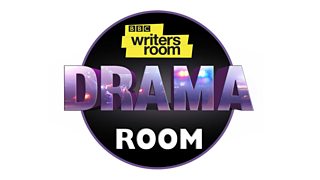Story v Character v Dialogue - an update from our Drama Script Room Readers
±«Óãtv Writers
Script readers
Tagged with:
So it’s the “” Script Room Reading Meeting and the glass-walled room at ±«Óãtv New Broadcasting House in London is packed with twenty readers who have mostly spent rather longer than is emotionally good for them reading scripts alone for weeks. But, faintly stir-crazy or not, it never fails to impress me (I’ve been part of the Reading Team for a few years) just how talented and sharp the readers are. The group is made up of Directors, Writers, Developers… you express an opinion in this company and you have to be on your toes. But everyone is dead nice too, generous, and committed to the task. I think we all feel a bit honoured to have been asked (or is that just me?)

But don’t for a minute get the impression that we’re sitting round mumbling in smug agreement about what makes an excellent script. In fact we kick off what can only be described as an impassioned debate on the merits of Story over Character and Dialogue. It began when the Producer of the process asked if we could offer useful feedback to writers on which scripts really stand out at this stage?
I launch in vehemently to champion scripts which nail Story. It’s what drives a writer to write and what makes the audience watch or read. Stories are what lodge in your mind and hold you captive and form the way you think about the world. They last for centuries and drive our imaginations beyond our own worlds. Just in terms of craft, story is the motor of a drama; the legs that make it move. A script with no real story means a script with no movement, and no movement means no drama, because drama demands that things change. A clever representation of characters and ideas is just not enough for me; it’s not drama, it’s a portrait or a discussion.

But there’s an equally heartfelt argument coming from those in the Character corner. Characters are what engage the audience emotionally and make them care. Only a writer of great skill can get under the skin of people, understand them and make them come alive in all their compelling complexity. Compelling in the sense that they are recognisable or charismatic because they are so original and fresh to the audience; somebody like they’ve never known before.
Now someone in the room mentions Aristotle saying that Character is Story ("PLOT is CHARACTER revealed by ACTION"). There’s a beat of silence and you can hear us all thinking about that one.
And then there are several voices raised for just how vital a flair for dialogue is. It’s the one thing you can’t teach, is the feeling in the room. A great dramatist will always have an instinct for great dialogue. If you can’t write good dialogue you’re in the wrong medium.
Don’t get me wrong, there are no cups being thrown, but there are really quite a lot of exclamations and hand gestures going on here!
Then , one of the Execs chairing the show, raises his hand above the melee and says “Guys, guys, Character, Dialogue, Story…they’re ALL important”. And we all laugh and agree in only very slightly shame-faced mumbles because perhaps we didn’t need to get quite that shouty.
And of course, yes, they’re all vital. We all know it. And you can’t beat the feeling when you find a writer that has nailed all three.
We received 3845 scripts in total in the latest Drama Script Room and 572 made it to the second sift (30-page read). 137 scripts were successful in the second sift and have gone on to full reads. Following this approximatedly 40 will be put through to be read in full by at least 2 members of the ±«Óãtv Writersroom team. .
We hope to inform everyone who entered a script after Easter.
The next open submission window is for Comedy, opening on Monday 19th March, closing Monday 16th April.
